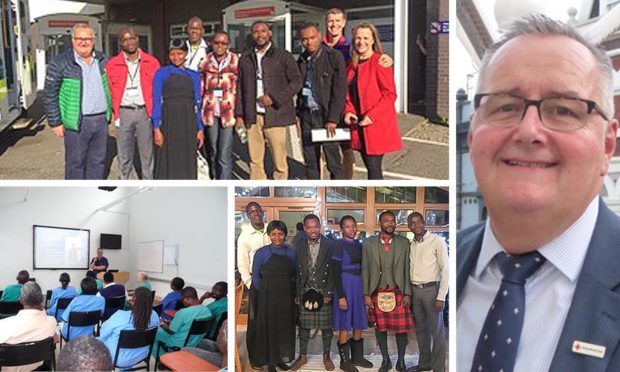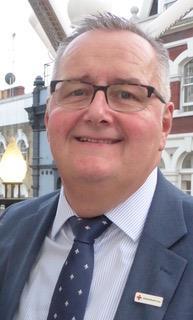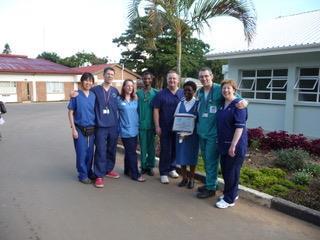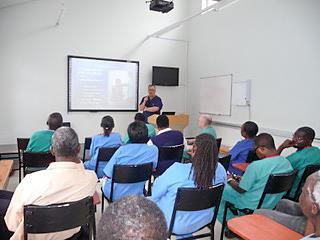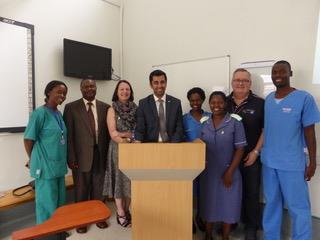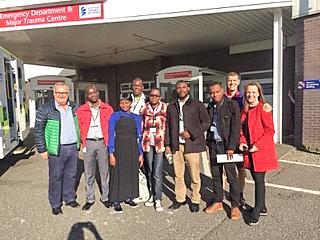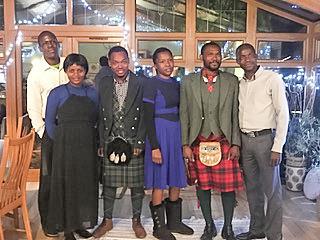After a long career giving back to the local community, NHS Tayside consultant in emergency medicine, Dr Barry Klaassen, has been recognised for his international work setting up emergency medical care centres in Malawi.
Dr Barry Klaassen always knew he wanted to be a doctor.
Graduating from Dundee University in 1987, his career with NHS Tayside has spanned more than 20 years and despite retiring last year, he continues to be an integral part of the local emergency medicine service.
Now, Dr Klaassen has been recognised with an International Federation of Emergency Medicine (IFEM) Humanitarian Award, for his work with the Scottish Emergency Medicine – Malawi Project, helping to set up emergency and trauma centres in Malawi.
Dr Klaassen remembers: “I was approached in 2008 by people I knew in Malawi, saying their provision for adult emergency care was really poor.
“They’d done some developmental work addressing paediatric emergency care, but they had no expertise for adults.
“I did my student elective in Malawi in 1987. Some of the people I knew were trying to develop emergency care and they asked me if I could help.
“I went after funding and the Scottish Government International Development Fund awarded us £330,000 in 2010 to develop Malawi’s first adult emergency and trauma centre.”
Transforming emergency medicine
Emergency medicine is an essential part of hospital care, compassionately and efficiently treating those who have been involved in accidents, assaults and other traumas.
Through the Scottish Emergency Medicine – Malawi Project, Scottish medical staff were able to train and support staff in Malawi, eventually opening the first emergency and trauma centre in Blantyre, Malawi in 2010.
Dr Klaassen continues: “It has been so successful. The staff run it autonomously and it has significantly reduced the death rate on admission.
“Prior to its establishment, there was no priority of care and no real emergency treatment was given in the emergency department.
“One of the main challenges was the enormous limited resource in Malawi: While the department in Ninewells might have 80 nurses, the department in Blantyre manage with eight to 12 nurses.
“You saw nurses doing back-to-back shifts, sometimes working 24 hours because there weren’t enough people to cover the night shift. There was also the lack of equipment and medicine.
“However, there was a huge buy-in from the rank and file staff. They were really on-board with what we were trying to develop for them. Everyone was so welcoming and willing to accommodate. It was a great collaboration.
“We don’t impose what we think they need, we listen to what they ask us for. One of the key principles is we didn’t go out there as health tourists. We worked alongside our Malawian peers so they could develop their skills.”
Funding for the future
After securing further funding of more than £1 million, the team will set up three more emergency and trauma centres in the remaining major hospitals across the country – a plan that is on hold due to the coronavirus pandemic.
Dr Klaassen explains: “We’re hoping as things normalise and the vaccination programme rolls out globally, we’ll be able to get back to work. Hopefully we can resume the project next year.
“Then, for the first time, there will be a national network of emergency care in Malawi with four major centres, which is not dissimilar to Scotland with its four major trauma centres.
“Seeing it up and running self-sufficiently, it’s really heartwarming to know Dundee has played its part in helping.
“It’s a two-way learning process and at the end of the project, we felt we’d gained more from it than we’d given.”
Team effort
For the team’s efforts, Dr Klaassen was awarded the 2020 IFEM Humanitarian Award for his work supporting and being led by colleagues in Malawi, which was postponed due to the pandemic.
Dr Klaassen says: “I was amazed and really humbled that the IFEM have knowledge of what we’re trying to do from our little corner of the world in Dundee to help those in Malawi.
“This is the work of a dedicated team of NHS contributors, not least my three other strategy team co-workers from Ninewells – lead nurse Gwen Gordon, charge nurse in emergency medicine Linda Imrie and emergency consultant Russell Duncan.
“We have fantastic support from every member of staff in the Ninewells emergency department. It is hugely humbling, and I’m immensely proud of our work.”
‘It’s the right thing to do’
The work being done by the Scottish Emergency Medicine – Malawi Project shows the importance of international development funding.
In Malawi, just 0.2% of the population are fully vaccinated against Covid-19, compared with 47.2% of the UK population, highlighting the discrepancy between the healthcare systems and the further need for global partnerships.
Dr Klaassen says: “I think we should all share our place on the planet as humanitarians.
“If you have a skillset and some knowledge, one of the things is not just developing it for your own, but to share it with others is really important.
“It’s important as a general act of kindness. It’s just the right thing to do.
“In Scotland we have a very special relationship with Malawi and long may that continue. “
